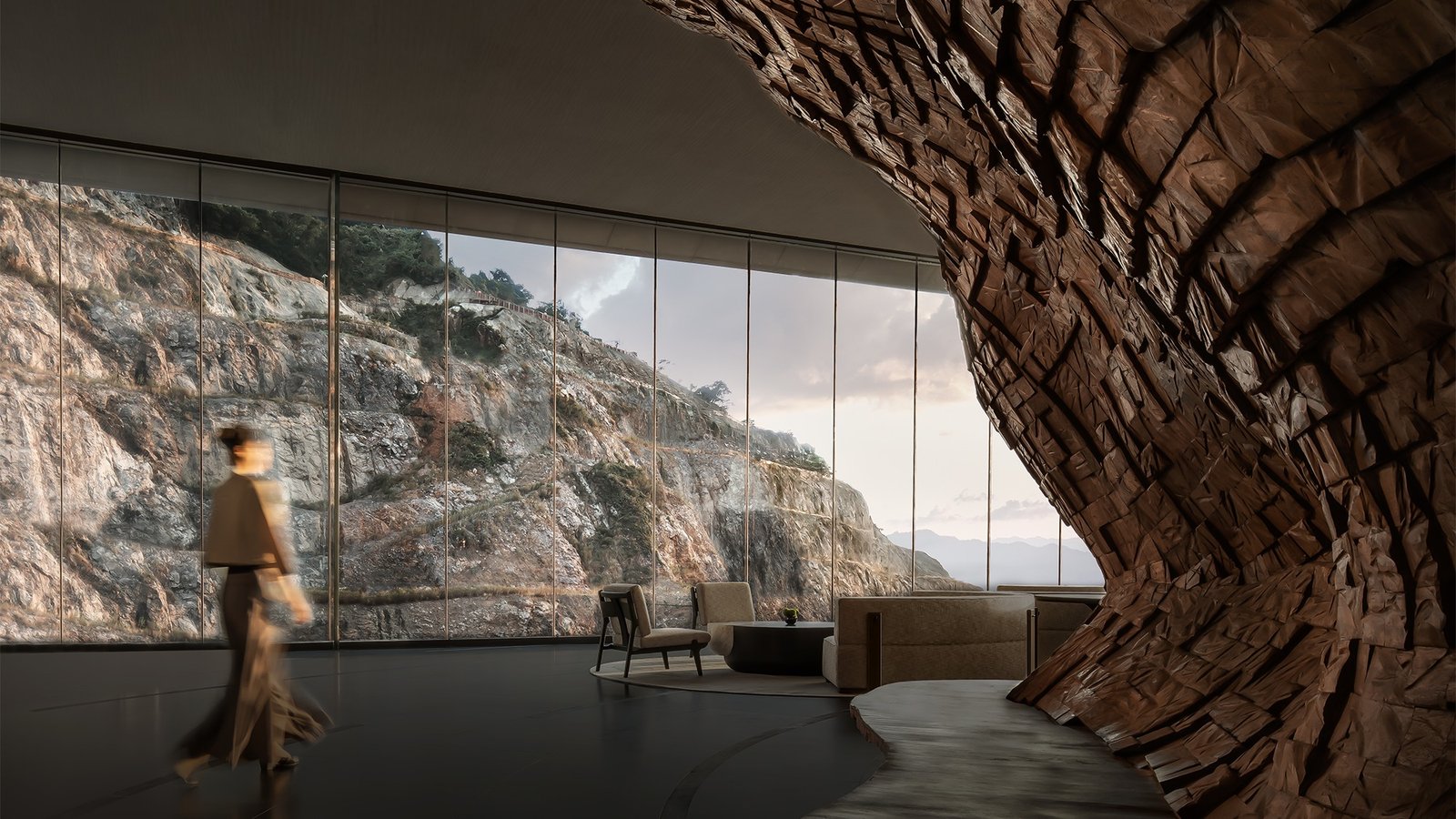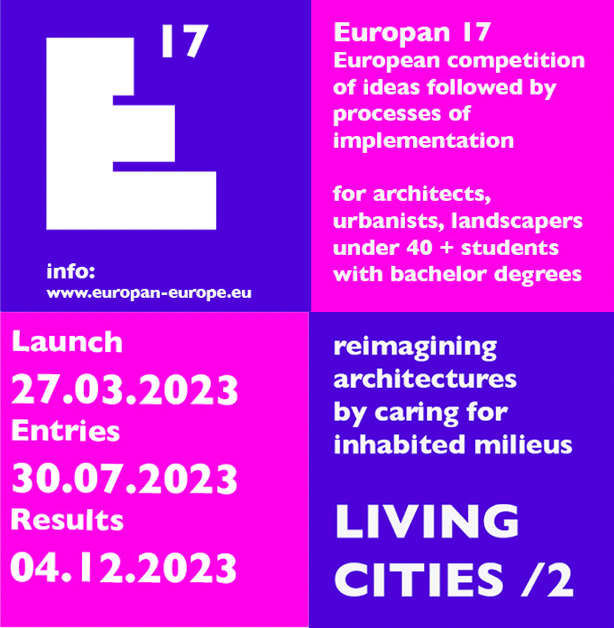Interior Design of Banyan Tree Nanjing Garden Expo / CCD
Interior Design of Banyan Tree Nanjing Garden Expo / CCD


Text description provided by the architects. Banyan Tree Nanjing Garden Expo is a luxury hotel located on Tangshan Mountain, which was once a paradise dense with clouds and mists. However, the exploitation and destruction by humans have stripped its vegetation, changed the geography, eroded the soil, and damaged the landscape, turning Tangshan Mountain into devastated industrial ruins. It has become imperative to beautify and restore the site to enable the symbiosis of humans and nature.


Break through the “cocoon” for rebirth, and rebuild a mysterious wonderland in the quarry valley. With a long-abandoned quarry as the hotel’s site, the first priority of the project was ecological restoration.CCD deconstructed and reshaped various elements such as light, stones, forest and rain on the abandoned limestone quarry. In this way, a new mysterious wonderland is created in the former quarry valley. Cocoon symbolizes the end of the old form, but also the origin of a new life. From the outside to the inside, the cocoon is about accumulation; from the inside to the outside, it is about breaking, rebirth and sublimation. Space design is the process of breaking the cocoon and rebirth, to let imagination metamorphose into the art of living. Life originates from nature. For this project, the spiritual pursuit and artistic imagination of space are inspired by the “conception – breaking through cocoon – rebirth” cycle of life.CCD compared the whole architecture and space to a “cocoon” that nurtures new life, and presented the vitality and tension of “cocoon break and rebirth” with a minimalist, modern design language. The form of the “cocoon” is deconstructed and evolved to respond to nature.


“Cocoon” is the main form in the unified spatial context. With simple lines and layered weaved bamboo elements, the space seems to return to the origin of human beings and nurture a new life in the mother-like dreamland. The curved form makes the space soft and rounded. The reshaped space reveals a visual sense of metamorphosis and amazement. It resembles a pair of open arms, giving a home-like sense of belonging. This is a place where imagination starts and expands. The natural space breeds infinite vitality, leading to the far-reaching future. Strolling in the space is a reboot of the consciousness of man and nature, from art to reality, from body to mind.


Art returning to the earth. After a long period of mining, there was little greenery left on the mountain, leaving only bare soil and stones exposed. CCD team contemplated on how to ensure the functionality of the design while blending it to the surroundings to contribute to ecological restoration. To blend the architecture into nature, the designers adopted natural materials. The team believes that design is not only about form but more importantly is about becoming a part of natural environment. The selection of materials emphasizes sustainability and the respect to ecosystem. Taking nature as the medium of creation, the natural materials create a holistic, artistic scene.


Valley of light. Based on the site’s conditions and the design intention, the designers created a “Valley of light” in the lobby bar. Taking advantage of the depth and variations of the valley, the space is curved and cut to present a natural scale and inclusiveness, making the guests feel as if they’re surrounded by a natural canyon. The designers conceived this space as an adventurous tour. Walking along the mountain trail to explore further and further, the guests feel like they’re standing on a cliff against the backdrop of sunset. Natural hues set the overall spatial tone. The whole space is light and elegant, and incorporates natural forms. It is enriched by varied structures, creating more possibilities for spatial exploration. Art integrates into the space in various forms, provoking thoughts on the relationship between people, space and nature through creativity and rich imagination.


Time forest. The sunlight, forest and waterscape form an enchanting picture. The all-day-dining restaurant takes the fluid daylight and shadows to guide the circulation, enhances the emotional experience through details, and constructs a poetic modern space where light and darkness interplay. This space is simple, natural, and inseparable from nature. As the guests walk through the greenery, a whole fascinating world comes into sight. Time is slowed down here, every detail is sculpted without artifice, and here and there a surprise is waiting to be discovered. The large floor-to-ceiling windows bring abundant natural light into the space. The sunlight and bright color tones highlight the warmth of wooden materials, portraying a picture of cozy life. The space is full of poetry, presenting a coexisting relationship with the outdoor environment.


Valley of fireflies. Walking from the “Forest” to the “Valley of fireflies”, the guests enter a secret world. The gate of the Chinese restaurant echoes the lobby’s concept of “breaking through the cocoon for rebirth”, and opens another journey behind the door. It not only ensures the unity of the design, but also enhances the immersive experience of the guests. As the guests wander along the circulation, subtle and sophisticated details are waiting to be discovered. The space is awash with an inconspicuous yet enchanting rhythm. The design extracts the mysterious forest elements of Tangshan Mountain, and transforms them into the patterns of screens, which separate yet connect different areas. Black and white, hardness and softness, implicit charm and noticeable strength, delicate grain and rough textures, are balanced in harmony.


Forest of rain. The limestone cliff of the quarry appears bleak and broken, but its magnificent scale is astonishing. Through the years, plants have quietly grown between the rock layers, and formed a beautiful texture on the stone cliff in the quarry. The entire quarry cliff looks like a natural landscape painting, which inspired the design team. The vitality of the space relies on sustainable ecology, and is relevant to the continuation of the site’s context. The designers brought the natural rocks of Tangshan Mountain into the interior. The rocks, eroded by winds and rain, show the traces of nature and enable the interior space to fully blend with nature. Meanwhile, the rocks also echo the spirit of the site while carrying the memories of nature. Poetic scenes, rustic textures and contemporary art blend in a sophisticated yet moderate manner. The artwork “Eye of Tangshan Mountain” triggers the site’s memory while connecting the design with art and cultural context.


Stone trail. Every guestroom is equipped with a hot spring bath with a view of the valley and cliffs. The architectural structure and interior furnishings create a natural ambience that subtly resonates with mysterious atmosphere of the quarry valley. Presenting forms with scenes and expressing emotions through forms is a core idea that the designers intended to convey. In order to achieve this, the team fully contemplated on the connection between the interior and the outside. Retro green spreads throughout the space, which represents the vitality of “new life” whilst also creating an impression of fusion with nature. The green tone creates poetry in interaction without being overly prominent. From the walls to the table, the warm texture injects a calming ambience into the overall space. The still stones on the wall echo the site’s setting, and intermingle with dynamic light and shadows, bringing about a harmonious scene.









